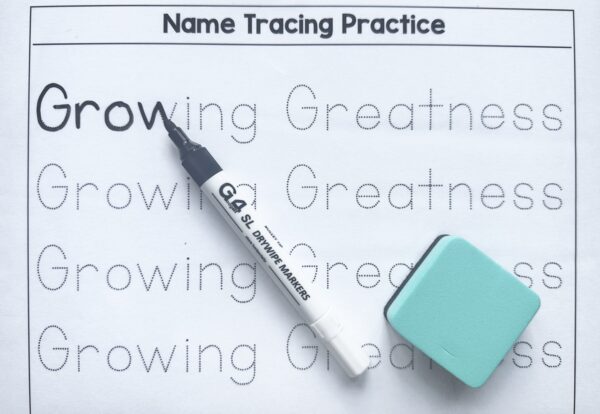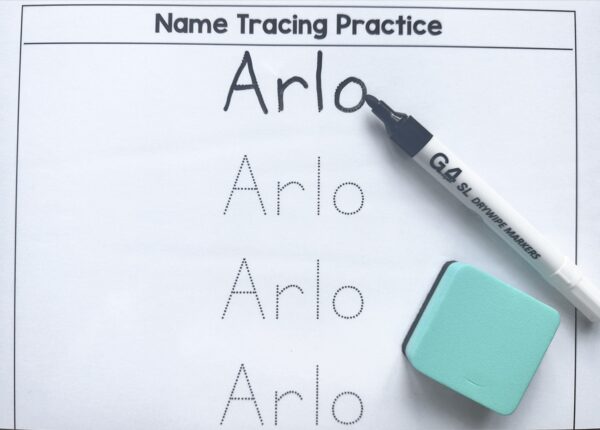As parents and Early Years Educators we are always on the lookout for fun and effective ways to help young children develop their fine motor skills and learn essential foundation skills. Name Tracing worksheets are a valuable tool used in early years education, offering a range of benefits to your child that go beyond simply learning to write their name!
Let’s take a look at the numerous benefits of incorporating name tracing practice worksheets into your child’s everyday learning routine.
1. Fine Motor Skills Development
One of the primary benefits of Name Tracing Worksheets is the improvement of fine motor skills. Young children often struggle with the coordination required for precise writing, however by regularly practicing to trace their names they are able to gain control of their hand movements and refine their fine motor skills which are crucial for tasks like writing, drawing, and even tying their shoelaces!
2. Name & Letter Recognition
Children quickly learn to recognise their own name through repeated tracing. Recognising their own name is vital as it promotes a sense of identity and belonging. Through tracing, children also develop an awareness of different letters which is their first introduction to understanding the concept of written words and is essential for reading readiness.
3. Mark Making
Before children can start writing letters and words, they need to develop mark making and pre-writing skills. Name tracing practice encourage children to follow lines and curves, preparing them for more advanced writing tasks in the future.
4. Hand Eye Coordination
Tracing requires children to develop their hand eye coordination; This essential skill not only supports with writing but also with various daily activities such as catching a ball, stacking blocks and using a fork or spoon.
5. Boosted Confidence
Successfully tracing their name, provides children with a sense of accomplishment which boosts self esteem and confidence. This positive reinforcement can motivate children to continue practicing and engage in other learning activities. As your child enters the classroom, they will have a basic understanding of writing and drawing, which will ease the transition into school.
6. Parent Child Quality Time
Use the activity of name tracing to engage in quality one-to-one time with your child. Sitting down with your child to complete a focused activity each day and offering praise and encouragement will promote a lovely bond and positive attitude towards learning.
Name Tracing practice sheets are an essential part of a child early education and as we’ve seen has several different benefits that support their learning and development. Order your child their own personalised name tracing kit with wipeable pen and eraser from here.








